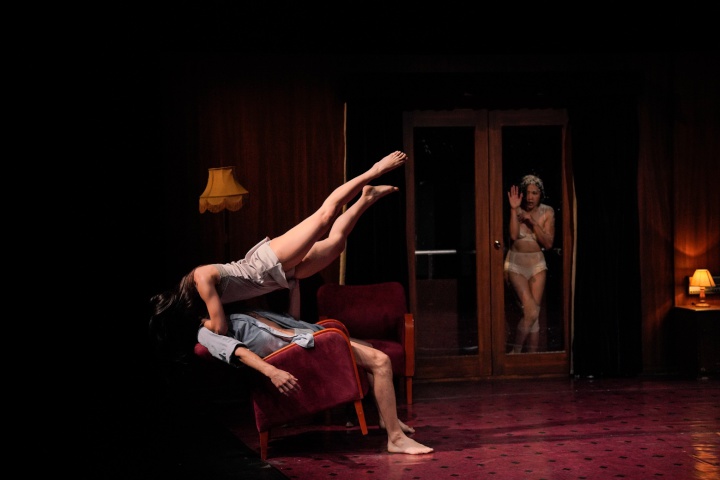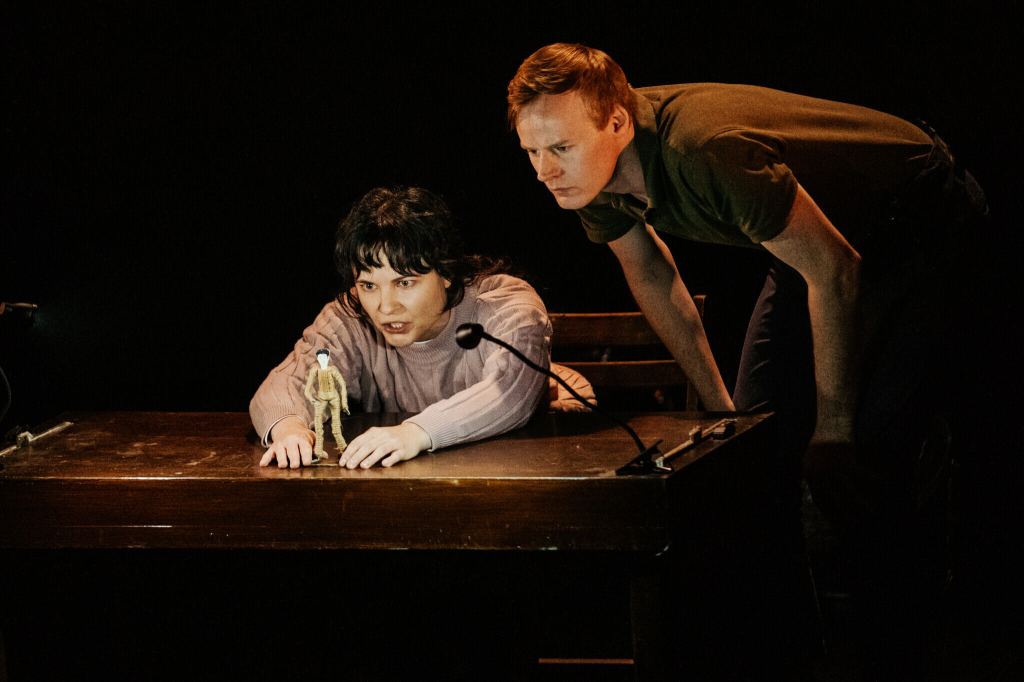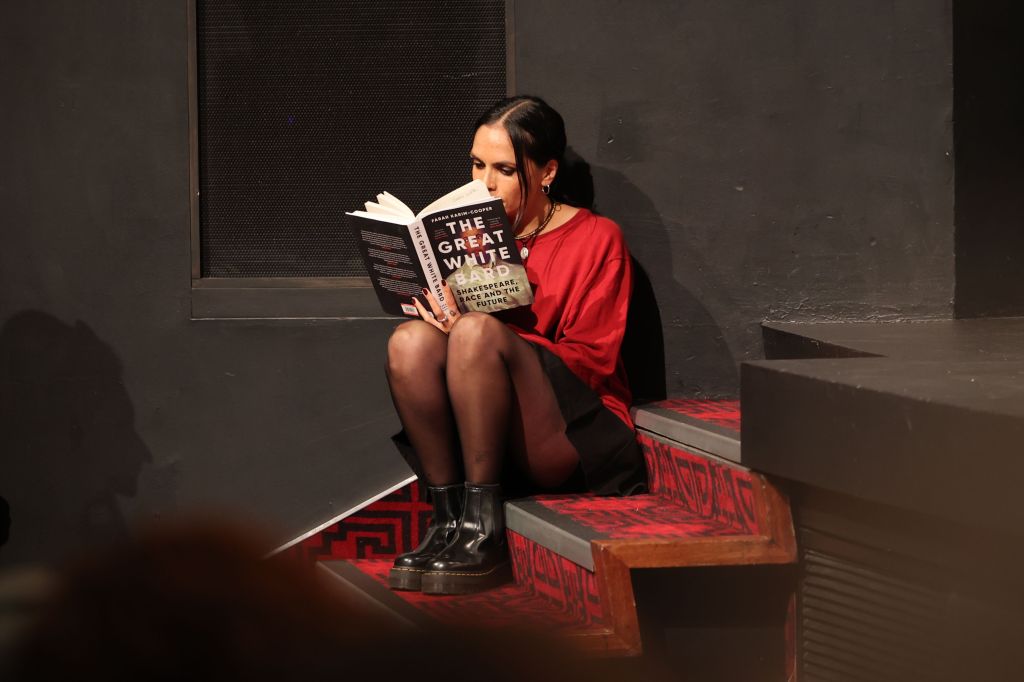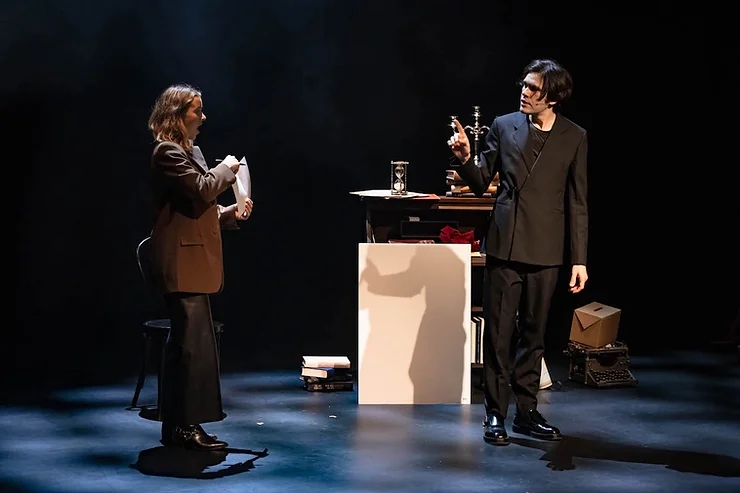Reviewed by Malcolm Calder

Reviewed by Malcolm Calder
Auckland Arts Festival
Diptych
Peeping Tom, Belgium
Kiri Te Kanawa Theatre, Aotea Centre
Diptych: The missing door & The lost room
Concept / Directors, Gabriela Carrizo and FranckChartier
Until 24 March
Review by Malcolm Calder
I normally try and write these words as soon as possible after a performance. But this time I couldn’t and eventually decided to sleep on it. Only I couldn’t sleep either. In my mind images and thoughts swirled in what I could only describe as atmospheric convolution.
But first things first. Diptych comprises two parts – the first about a missing door, and the second about a lost room. There is a third part, making it a Triptych, but we don’t see that here in this Auckland program.
My over-weaning sense of this company is the dynamic, slick and truly mesmerising movement in its choreography. Belgian founders Gabriela Carrizo and Franck Chartier have established Peeping Tom as a unique force in dance theatre transforming hyperrealist settings into unstable universes that defy the logic of time, space, and mood. This work and the company’s lineage to Pina Bausch are clearly evident and I can easily see why Artistic Director Shona McCullagh chose it as one of the centrepieces of her 2024 Festival.
As well as movement, Diptych also owes much to an all-enveloping soundscape that adds a hypnotic quality, overlaying music with live percussion and everyday noises. This underpins the sheer physicality and many of the jarring and emotional shocks that lie ahead.
The staging starts out tiny and winds up using the full breadth of the stage giving it a cinemascopic quality. And, just in case we missed it, the entire work is cinematic. This is underscored by the introduction of rolling klieg lights, a boom mic and a set that is deconstructed then reconstructed by technicians in full view of the audience.
Completing the context, and further highlighting the illusion, are costumes that writhe and twist almost becoming creatures and taking on characters of their own, whilst echoing the movements of the dancers whose movements who, it seems, are controlled by non-logical and even gravitational forces.
Then my mind returned to ponder the word ‘convolution’ itself. Turns out it’s a term that describes a form or shape that is folded in tortuous windings, or one of the irregular ridges on the cerebrum of higher mammals oran intricacy of form, design, or structure in which the combinations of power and the caprices of the powerful are ever-present dangers to survival (thanks Mr Merriam-Webster).
Yep, that’s about right I decided. And henceforth, for me, Diptych became a convoluted dance theatre work.
I knew it was about a man’s mental anguish and I immersed myself in that tangled web. It has no single direction veering between reality, memories, desires, dreams and nightmares. At times I was slow to grasp a thread; at others I got it instantly.
Eventually I just stopped fretting about trying to work things out in any logical or linear fashion, sat back and let it wash or surge, over me. And I’m glad I did because that is what Diptych is all about. Rather than trying to ‘understand’ what Carrizo and Chartier were trying to say, the production itself taught me to just soak in it, to absorb it.
Yes, there was a missing door; and yes there were many surprises when some were opened. But the perceptions, context, memory and horrors of doing so were different for every character on stage. Similarly, an entire room got lost and the same applied.
What Festivals are supposed to do is introduce us to the new, the different and the normally unattainable. So congratulations to the Festival for taking this risk with Dyptych. It was certainly memorable for me – so much so that it never occurred to turn my phone back on again when leaving the theatre and I missed a raft of calls the next morning.
To subscribe or follow New Zealand Arts Review site – www.nzartsreview.org.
The “Follow button” at the bottom right will appear and clicking on that button will allow you to follow that blog and all future posts will arrive on your email.
Or go to https://nzartsreview.org/blog/, Scroll down and click “Su



